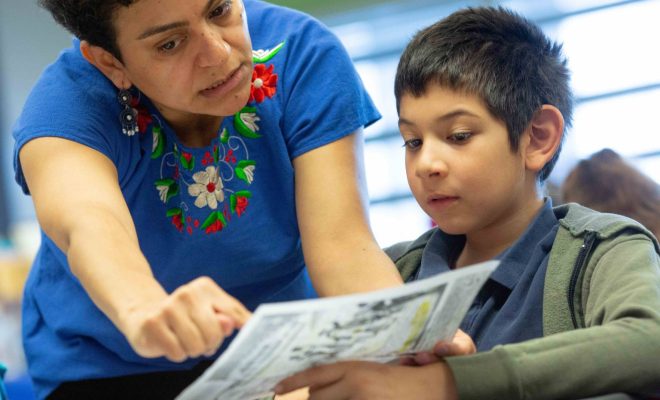How Educators Can Raise Their Digital IQ

Digital IQ is a relatively new term that signifies how well an organization is utilizing their technological resources. A school system might use a digital IQ to measure their proficiency with the tablets, laptops, and software used in the blended classroom. Just as we strive to make advancements in other areas of our schools, educators should be working to raise their digital IQ. Setting a higher standard for teacher development in this area could have a major benefit to the students they serve.
Digital IQ and instruction is often something that falls by the wayside for continuing education for teachers. However, our school districts must begin to provide professional development that can raise the bar in this area. Here are a few ways that educators can start to raise their own digital IQ right away.
Create a Roadmap
Many teachers remain stagnant in their current digital knowledge because they have no plan for the future. Schools need to create a roadmap for the entire building that shows the long-term goal of technology in the classroom. This may motivate educators to begin seeking additional training for the changes that are on the horizon. Alternatively, schools may be able to plan for professional development days and workshops that allow teachers hands-on time to start improving their digital IQ together. According to experts, this roadmap also prevents everyone from losing sight of the goal in favor of flashier platforms and technology that may arise.
Research New Products
The edtech market is constantly developing new products for students and teachers. Only a few classrooms are staying on top of the latest trends because they are sweeping through so quickly. Forbes cites that one of the biggest reasons digital IQ is falling is due to the rapid pace of innovation. Educators can improve their digital fluency while finding the very best products for their students when they are engaged in active research.
Understand Data Analytics
Teachers could raise their digital IQ by learning to read and interpret the data found in many of the software programs. Data literacy is still considered to be a rather limited subject area for most educators, despite the potential to radically change the classroom. With a higher digital IQ, teachers could learn how to reach students more effectively and even pinpoint problem behaviors before they start. Learning how to access and interpret the numbers found within their systems could be essential to helping students succeed.
Educators have a responsibility to stay on top of their own knowledge and continued training. Digital IQ is a major indicator of how well they are doing with the new blended classroom model. By following these three steps, educators can start to boost their own digital IQ and provide a better classroom experience for their students.






